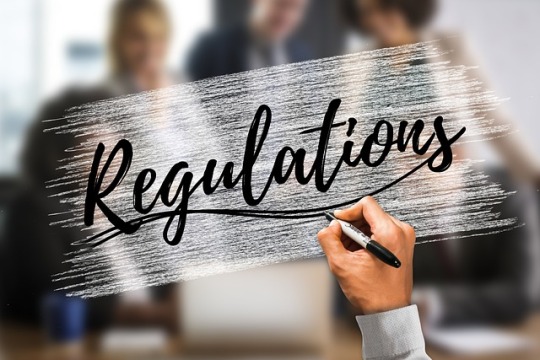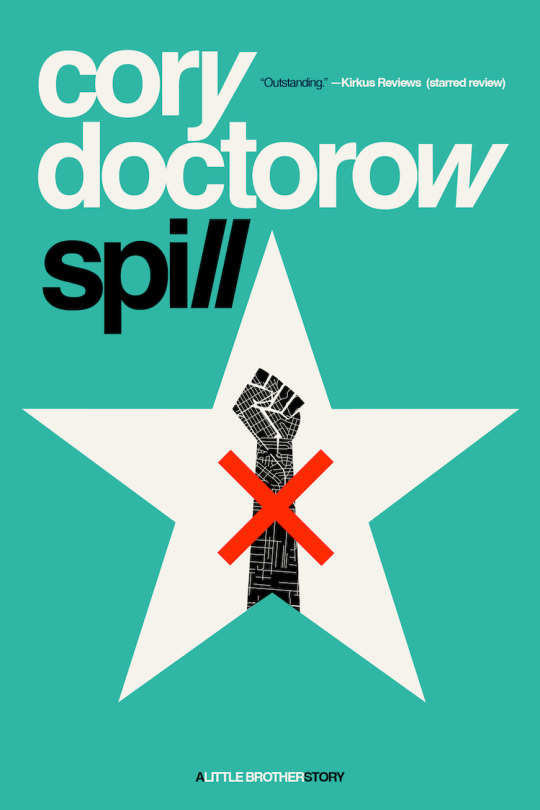#EU Safety Regulations
Explore tagged Tumblr posts
Text
Comparative Study of Global Construction Safety Norms
This article delves into a comparative study of global construction safety norms, highlighting how various countries approach construction safety. We will explore different regulatory frameworks, safety standards, and best practices implemented worldwide, emphasizing their impact on the construction industry. United States: OSHA Standards In the United States, the Occupational Safety and Health…

View On WordPress
#Australian Licensing#Construction in Japan#Construction Safety Practices#EU Safety Regulations#Global Construction Safety#International Safety Norms#Middle East Construction#Multinational Construction Projects#OSHA standards#risk assessment#Safety Compliance#Safety in India#technology in safety#worker training
0 notes
Text
I’ve fucking stapled my finger.
If you’re having a bad day, think that at least you didn’t fucking staple your finger.
#in case you're wondering:#it stopped bleeding right away. it bled extremely little#now it's swollen though#i don't think this stapler is up to eu safety regulations#it got stuck i tried to fix it#i fixed it but i stapled my finger#oh well#hopefully it doesn't have tetanus on it
5 notes
·
View notes
Text
Motorcycle News Noise Regulations in the EU and Radar Love
EU is changing rules on motorcycle news and Honda wants to reflect radar.
What you need to know: EU tightens motorcycle noise regulations. They are not changing the regulation (UN-ECE Regulation R41.05), for new motorcycles, but on how the regulation is tested. Currently regulation requires motorcycles on the road (without the engine running) at 31MPH (50kph) would have to be the same volume as the same bike travelling at 31MPH with the engine running. Starting in…
#automotive radar#EU motorcycle noise regulation#Harley#Harley Davidson#honda radar reflector#Motorcycle#motorcycle blog#motorcycle news noise rugulations in the eu#motorcycle news using radar to protect motorcycles#motorcycle noise regulations#motorcycle radar#Motorcycle Ride#motorcycle riding#motorcycle safety#motorcycle touring#sport bike#Sportbike
0 notes
Text
The General Product Safety Regulation (GPSR) is a regulation from the European Union that aims to safeguard consumers by establishing a standardized framework to guarantee consumers' health and safety throughout the EU.
#General Product Safety Regulation (GPSR)#EU Product Safety Regulation#EU market#GPSR EU#Consumer product safety in EU
0 notes
Text
Is AI Regulation Keeping Up? The Urgent Need Explained!
AI regulation is evolving rapidly, with governments and regulatory bodies imposing stricter controls on AI development and deployment. The EU's AI Act aims to ban certain uses of AI, impose obligations on developers of high-risk AI systems, and require transparency from companies using generative AI. This trend reflects mounting concerns over ethics, safety, and the societal impact of artificial intelligence. As we delve into these critical issues, we'll explore the urgent need for robust frameworks to manage this technology's rapid advancement effectively. Stay tuned for an in-depth analysis!

#AIRegulation
#EUAIACT
Video Automatically Generated by Faceless.Video
#AI regulation#AI development#Neturbiz#EU AI Act#AI ethics#AI safety#generative AI#high-risk AI#AI transparency#regulatory bodies#AI frameworks#societal impact#technology management#urgent need for regulation#responsible AI#ethical AI#tech regulation#digital regulation#government AI#AI#risks#governance#controls#deployment#concerns#policies#standards#challenges#innovation#regulation
0 notes
Text
Latest AI Regulatory Developments:
As artificial intelligence (AI) continues to transform industries, governments worldwide are responding with evolving regulatory frameworks. These regulatory advancements are shaping how businesses integrate and leverage AI technologies. Understanding these changes and preparing for them is crucial to remain compliant and competitive. Recent Developments in AI Regulation: United Kingdom: The…

View On WordPress
#AI#AI compliance#AI data governance#AI democratic values#AI enforcement#AI ethics#AI for humanity#AI global norms#AI human rights#AI industry standards#AI innovation#AI legislation#AI penalties#AI principles#AI regulation#AI regulatory framework#AI risk classes#AI risk management#AI safety#AI Safety Summit 2023#AI sector-specific guidance#AI transparency requirements#artificial intelligence#artificial intelligence developments#Bletchley Declaration#ChatGPT#China generative AI regulation#Department for Science Innovation and Technology#EU Artificial Intelligence Act#G7 Hiroshima AI Process
1 note
·
View note
Text
Call for Ban of Apple iPhone 12 That Failed the Radiation Safety Test. 30 Groups Call on EU Regulators
Call for Ban of Apple iPhone 12 That Failed the Radiation Safety Test. 30 Groups Call on EU Regulators
View On WordPress
0 notes
Text




That's the books finally arrived!!
My online store will be open until TUESDAY DEC 10th.
Please note that all orders are sent via standard international shipping services (2 - 3 weeks). If you want an expedited and tracked order, make sure to add the "I Want International Tracked Shipping" item from the store.
Additionally, due to the upcoming EU safety regulation changes, I don't know if I'll be able to ship into the EU as a small business, so now's a good time to grab some stuff if you're a EU local.
I will be closing the store for the holidays and re-open it again at the start of 2025.
2K notes
·
View notes
Text
due to these new regulations, i'm going to have to halt shipping to northern ireland and EU countries for the foreseeable future. hopefully all this is temporary 😭 like every single other UK small business i follow has been in the same boat. much confusion abound.
#feel like pure shit just want her (GB being part of the EU) back#hate this sm......... kinda feels like so much is stacked against small businesses rn tbh
307 notes
·
View notes
Text
Academic economists get big payouts when they help monopolists beat antitrust

After 40 years of rampant corporate crime, there's a new sheriff in town: Jonathan Kanter was appointed by Biden to run the DOJ Antitrust Divisoon, and he's overseen 170 "significant antitrust actions" in the past 2.5 years, culminating in a court case where Google was ruled to be an illegal monopolist:
https://pluralistic.net/2024/08/07/revealed-preferences/#extinguish-v-improve
Kanter's work is both extraordinary and par for the course. As Kanter said in a recent keynote for the Fordham Law Competition Law Institute’s 51st Annual Conference on International Antitrust Law and Policy, we're witnessing an epochal, global resurgence of antitrust:
https://www.justice.gov/opa/speech/assistant-attorney-general-jonathan-kanter-delivers-remarks-fordham-competition-law-0
Kanter's incredible enforcement track record isn't just part of a national trend – his colleagues in the FTC, CFPB and other agencies have also been pursuing an antitrust agenda not seen in generations – but also a worldwide trend. Antitrust enforcers in Canada, the UK, the EU, South Korea, Australia, Japan and even China are all taking aim at smashing corporate monopolies. Not only are they racking up impressive victories against these giant corporations, they're stealing the companies' swagger. After all, the point of enforcement isn't just to punish wrongdoing, but also to deter wrongdoing by others.
Until recently, companies hurled themselves into illegal schemes (mergers, predatory pricing, tying, refusals to deal, etc) without fear or hesitation. Now, many of these habitual offenders are breaking the habit, giving up before they've even tried. Take Wiz, a startup that turned down Google's record-shattering $23b buyout offer, understanding that the attempt would draw more antitrust scrutiny than it was worth:
https://finance.yahoo.com/news/wiz-turns-down-23-billion-022926296.html
As welcome as this antitrust renaissance is, it prompts an important question: why didn't we enforce antitrust law for the 40 years between Reagan and Biden?
That's what Kanter addresses the majority of his remarks to. The short answer is: crooked academic economists took bribes from monopolists and would-be monopolists to falsify their research on the impacts of monopolists, and made millions (literally – one guy made over $100m at this) testifying that monopolies were good and efficient.
After all, governments aren't just there to enforce rules – they have to make the rules first, and do to that, they need to understand how the world works, so they can understand how to fix the places where it's broken. That's where experts come in, filling regulators' dockets and juries' ears with truthful, factual testimony about their research. Experts can still be wrong, of course, but when the system works well, they're only wrong by accident.
The system doesn't work well. Back in the 1950s, the tobacco industry was threatened by the growing scientific consensus that smoking caused cancer. Industry scientists confirmed this finding. In response, the industry paid statisticians, doctors and scientists to produce deceptive research reports and testimony about the tobacco/cancer link.
The point of this work wasn't necessarily to convince people that tobacco was safe – rather, it was to create the sense that the safety of tobacco was a fundamentally unanswerable question. "Experts disagree," and you're not qualified to figure out who's right and who's wrong, so just stop trying to figure it out and light up.
In other words, Big Tobacco's cancer denial playbook wasn't so much an attack on "the truth" as it was an attack on epistemology – the system by which we figure out what is true and what isn't. The tactic was devastatingly effective. Not only did it allow the tobacco giants to kill millions of people with impunity, it allowed them to reap billions of dollars by doing so.
Since then, epistemology has been under sustained assault. By the 1970s, Big Oil knew that its products would render the Earth unfit for human habitation, and they hired the same companies that had abetted Big Tobacco's mass murder to provide cover for their own slow-motion, planetary scale killing spree.
Time and again, big business has used assaults on epistemology to provide cover for unthinkable crimes. This has given rise to today's epistemological crisis, in which we don't merely disagree about what is true, but (far more importantly) disagree about how the truth can be known:
https://pluralistic.net/2024/03/25/black-boxes/#when-you-know-you-know
Ask a conspiratorialist why they believe in Qanon or Hatians in Springfield eating pets, and you'll get an extremely vibes-based answer – fundamentally, they believe it because it feels true. As the old saying goes, you can't reason someone out of a belief they didn't reason their way into.
This assault on reason itself is at the core of Kanter's critique. He starts off by listing three cases in which academic economists allowed themselves to be corrupted by the monopolies they studied:
George Mason University tricked an international antitrust enforcer into attending a training seminar that they believed to be affiliated with the US government. It was actually sponsored by the very companies that enforcer was scrutnizing, and featured a parade of "experts" who asserted that these companies were great, actually.
An academic from GMU – which receives substantial tech industry funding – signed an amicus brief opposing an enforcement action against their funders. The academic also presented a defense of these funders to the OECD, all while posing as a neutral academic and not disclosing their funding sources.
An ex-GMU economist, Joshua Wright, submitted a study defending Qualcomm against the FTC, without disclosing that he'd been paid to do so. Wright has elevated undisclosed conflicts of interest to an art form:
https://www.wsj.com/us-news/law/google-lawyer-secret-weapon-joshua-wright-c98d5a31
Kanter is at pains to point out that these three examples aren't exceptional. The economics profession – whose core tenet is "incentive matter" – has made it standard practice for individual researchers and their academic institutions to take massive sums from giant corporations. Incredibly, they insist that this has nothing to do with their support of monopolies as "efficient."
Academic centers often serve as money-laundries for monopolist funders; researchers can evade disclosure requirements when they publish in journals or testify in court, saying only that they work for some esteemed university, without noting that the university is utterly dependent on money from the companies they're defending.
Now, Kanter is a lawyer, not an academic, and that means that his job is to advocate for positions, and he's at pains to say that he's got nothing but respect for ideological advocacy. What he's objecting to is partisan advocacy dressed up as impartial expertise.
For Kanter, mixing advocacy with expertise doesn't create expert advocacy – it obliterates expertise, as least when it comes to making good policy. This mixing has created a "crisis of expertise…a pervasive breakdown in the distinction between expertise and advocacy in competition policy."
The point of an independent academia, enshrined in the American Association of University Professors' charter, is to "advance knowledge by the unrestricted research and unfettered discussion of impartial investigators." We need an independent academy, because "to be of use to the legislator or the administrator, [an academic] must enjoy their complete confidence in the disinterestedness of [his or her] conclusions."
It's hard to overstate just how much money economists can make by defending monopolies. Writing for The American Prospect, Robert Kuttner gives the rate at $1,000/hour. Monopoly's top defenders make unimaginable sums, like U Chicago's Dennis Carlton, who's brought in over $100m in consulting fees:
https://prospect.org/economy/2024-09-24-economists-as-apologists/
The hidden cost of all of this is epistemological consensus. As Tim Harford writes in his 2021 book The Data Detective, the truth can be known through research and peer-review:
https://pluralistic.net/2021/01/04/how-to-truth/#harford
But when experts deliberately seek to undermine the idea of expertise, they cast laypeople into an epistemological void. We know these questions are important, but we can't trust our corrupted expert institutions. That leaves us with urgent questions – and no answers. That's a terrifying state to be in, and it makes you easy pickings for authoritarian grifters and conspiratorial swindlers.
Seen in this light, Kanter's antitrust work is even more important. In attacking corporate power itself, he is going after the machine that funds this nihilism-inducing corruption machine.

This week, Tor Books published SPILL, a new, free LITTLE BROTHER novella about oil pipelines and indigenous landback!


If you'd like an essay-formatted version of this post to read or share, here's a link to it on pluralistic.net, my surveillance-free, ad-free, tracker-free blog:
https://pluralistic.net/2024/09/25/epistemological-chaos/#incentives-matter

Image: Ron Cogswell (modified) https://en.wikipedia.org/wiki/File:George.Mason.University.Arlington.Campus.jpg
CC BY 2.0 https://creativecommons.org/licenses/by/2.0/
322 notes
·
View notes
Text
Not crazy about people writing off the Titan submersible incident as some schadenfreudic buzzstory they can rag on for a handful of internet funny points. I get the frustration, I really do. At least three of the passengers had to shell out $250,000 a ticket for a glorified deep sea Disney ride. The CEO of OceanGate is a capitalist wackjob who has been complaining about and bypassing safety regulations for years, despite multiple warnings, and now the retrieval is taking up time and resources from multiple countries that could have been put to better use. But one of the crew members on board was also the nineteen year old son of another passenger. I doubt his involvement extended much beyond “I’m going on a fun trip with my dad.” Another was an unaffiliated researcher who joined the expedition to collect environmental samples for DNA analysis. Not everyone on board was a high-rolling corporate yuppie. (And even if they were, it’s still a pretty objectively horrific way to die.) Instead of memes, I’d rather see this prompt a discussion on the ethics and potential regulation of scientific tourism.
The above also doesn’t change the fact that this is dragging media attention away from more pressing issues, such as the sinking of the Andriana. I guess “THE TITANIC CLAIMS ANOTHER FIVE VICTIMS” is a more colorful headline than “the EU’s xenophobic migration policies have led to the deaths of hundreds of migrants seeking asylum in Italy, and an active cover up is now taking place, headed by Greek authorities.” Seeing all this energy be funneled towards dragging this tiny capsule out of the Atlantic when up to five hundred refugees - mostly women and children - were locked in the hull of a ship and left to suffer the exact same fate, while Coast Guard vessels looked on and did nothing (or even had an active role in the capsize after a botched attempt to tow it, according to some testimonies), illustrates the sway money and race have in what we pay attention to. It’s a gruesome example of inequity in action.
I had compared what happened to the Titan to the Kursk incident, but the Andriana doesn’t have the luxury of being a freak accident. Over 25,000 migrants have disappeared or drowned trying to cross the Mediterranean since 2014, with over 2,000 deaths taking place in 2022 alone. Those are staggering numbers. Protests have broken out across Greece over the past week in the wake of the tragedy, advocating for migration reform.
While these sorts of mass casualty events tend to leave us feeling disheartened and helpless, there are ways to help. Below is a link to SOS Humanity’s donation page. Reputable search and rescue organizations such as SOS Humanity or SOS Mediterranée built their mission statements around helping migrants like the ones on board the Andriana. Donate if you can, spread the word if you can’t.
3K notes
·
View notes
Text




black friday sale!! use the code ITSFRIDAY2024 for 10% off your order from now until dec. 1, 11:59pm PST (applies to both storefronts)!
✨ shop link for orders to the USA and Canada ✨ shop link for international orders
important shop update: after dec. 9, i will no longer be able to ship to countries in the EU and Northern Ireland due to the new General Product Safety Regulations (GPSR). i'm so sorry! if you're located there and are interested in ordering from my shop, please do so before the 9th.
✨ discord server invite link for more frequent merch/shop updates!
other update details below the cut:
new merch: ♡ tristamp roadtrip CD charms - double sided, with a rotatable cd that shows different sky backgrounds!
♡ superbat omanjuus - soft and squishy. both designs come with a squeaker inside :DD
unfortunately, i cannot ship omanjuus to countries in the EU due to their toy/plushie regulations.
♡ superbat tired dads shakers - openable, double-sided shaker with 13 shaker pieces.
preorder here regular order here (until dec. 9) the shakers have arrived, but the bird keychain clasps i wanted to attach to them have not. however, since i will not be able to ship anything to the EU/Northern Ireland after dec. 9, i wanted to make them available in some form before that cutoff date! if you order through my etsy, they will come with a silver U clasp instead of the bird clasp.
restocks: ♡ vashwood day after tomorrow CD charms
for anyone that has a current order with me, i plan to ship them out early next week. however, i'm happy to combine shipping if you want to get something else! just write your current order number and that you'd like to combine shipping in the order notes and i'll refund one of your shipping costs!
#superbat#tristamp#trigun stampede#vashwood#nicholas d. wolfwood#vash the stampede#batfam#meryl stryfe#roberto de niro#dcu#superfam#batman#superman#dc comics#dc#bruce wayne#clark kent#trigun maximum#trimax#shop updates#mine#merch stuff
205 notes
·
View notes
Note
Hey Maya and friends!
Have you heard of the General Product Safety Regulations (GPSR) that goes into effect in the EU on December 13th? How will this affect your ability to ship to the EU? I really hope it won't, because I love your skirts!
this won’t effect us at all!
our factory is in turkey and is way certified past what the GPSR requires and we are covered under that. GPSR also requires having an EU rep and our factory already has that bc they needed one to meet previous regulations so there won’t even be like an awkward transition period or anything because everything is already handled.
52 notes
·
View notes
Text
I just want to throw out a quick reminder to go vote next month. The EU parliament is not sexy and does not appear in the news as much as it should, but it is incredibly important. Many important fields of politics are decided there, like all internet regulation (GDPR for Privacy, DSA and DMA for regulating app stores, as just the two most important examples lately), product safety, energy policy, infrastructure funding and so on. A big example: The EU has outlawed the sale of new internal combustion vehicles from 2035.
Conservatives want to overturn that, and this election will be their chance to do so. The EU parliament is arguably the parliament that has the most influence over climate goals. We are seeing a scary rise tide of far-right politicians all throughout Europe that threaten any further progress and want to undo what has been done already. A strong EU parliament with a strong mandate and the right parties can be crucial.
Also note that the EU parliament does not have government and opposition sides, since the government (the commission) is appointed independently by the member states (which is not okay in my book, but that's a separate issue). It works with coalitions that change from issue to issue. What this means is that even tiny parties absolutely get a chance to participate in the political process. So votes for smaller parties are absolutely not wasted.
It seems boring and irrelevant most of the time, but the EU has a tremendous amount of power, and the EU parliament is how we control it. We should take advantage of that.
#politics#if there's one thing the Americans on Tumblr have taught me#it's that you don't have to tag 'go vote' posts with the countries/regions they apply to
130 notes
·
View notes
Text
#General Product Safety Regulation (GPSR)#European Economic Area (EEA)#GPSR requirements#EU product safety#GPSR Compliance#General Product Safety Directive (GPSD)
0 notes
Text
The Science of Humane Slaughter
I asked an expert on humane livestock slaughter how we decided on certain methods of slaughter as more or less humane than others, from a scientific perspective.
He pointed me to this document (PDF) from the European Food Safety Authority called “WELFARE ASPECTS OF ANIMAL STUNNING AND KILLING METHODS:” Scientific Report of the Scientific Panel for Animal Health and Welfare on a request from the Commission related to welfare aspects of animal stunning and killing methods.
It's long, and old (from 2004) but it's a pretty useful document summarizing a lot of the science of why certain methods of killing may be more or less humane.
You can test a method, for example, by hooking an animal up to an EEG and monitoring its brainwaves after stunning it, or delivering a fatal blow (functionally killing it, but it won't always die instantly following a fatal injury, so you can still monitor it.)
Other ways of monitoring and measuring suffering include recording: how many times does an animal vocalize (moo, grunt etc) after being put in a chute? If it moves, does that matter, or is that a post-mortem or unconscious spasm? Does it immediately collapse, does it blink when you touch its eye (corneal reflex)? Is the animal permanently brain-damaged (which is a good thing when you want it to die fast!) or is it only a little knocked out and immobile, with the potential for recovery if you were to not bleed it out? (Which is bad in that circumstance!) A scientist can test that by testing a stunning method on a group of animals and then seeing if they recover. Those individual animals are likely not happy if they do return to consciousness with a hole in their heads, but such is science.
Anyway, while the testing might sound gruesome, I thought you'd like to know that slaughter regulations are pretty serious and well-studied. And those regulations seem pretty consistent among everywhere I've seen (EU, Norway specifically, the US.) With some minor differences here and there.
Perhaps we will discover better ways to slaughter meat animals in regard to their welfare, or perhaps we will find one day that our preferred method wasn't as good as we thought! There might also be people doing things in very bad, unintentionally cruel ways because of silly, disproven myths (but, if someone is legally selling meat, any US slaughterhouse is required to have a USDA rep see every death.)
I don't want to imply that every animal death goes perfectly well, or that it's even acceptable, or that the meat industry is perfect or good! But I do want to share that there is scientific precedent for why people kill livestock the ways they do, and you can read the studies in the aforementioned document. There are tons.
PS. If you have any interesting insights on the science of humane slaughter, I'd love to see them! Or, even, just tell me how it's done in your country, the role of the government, etc.
130 notes
·
View notes